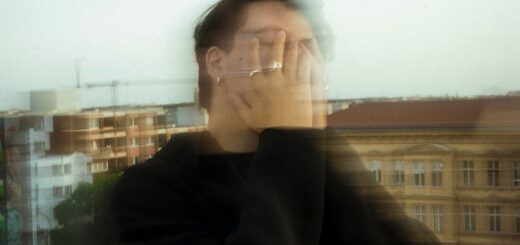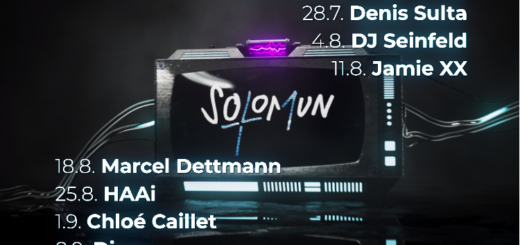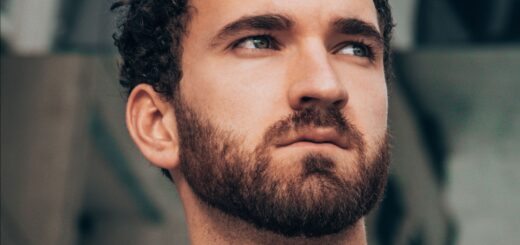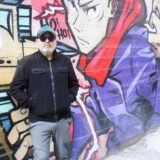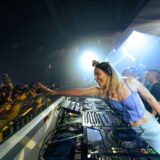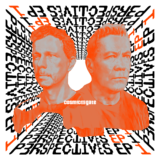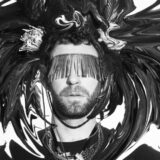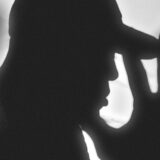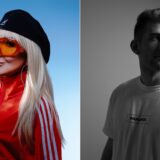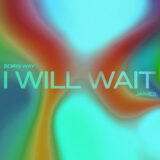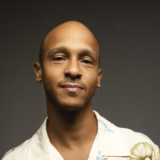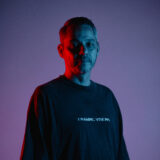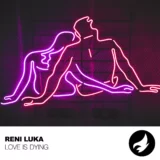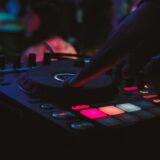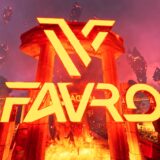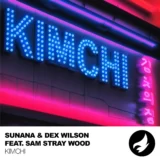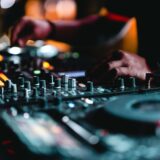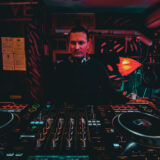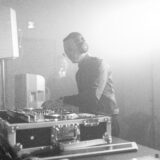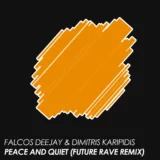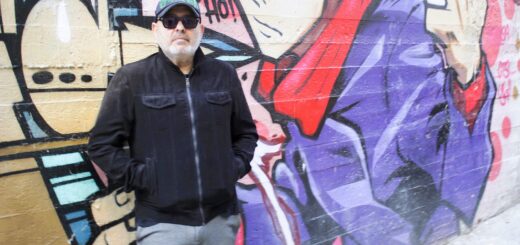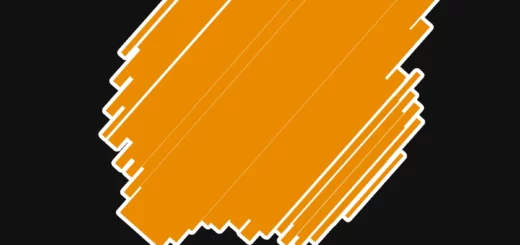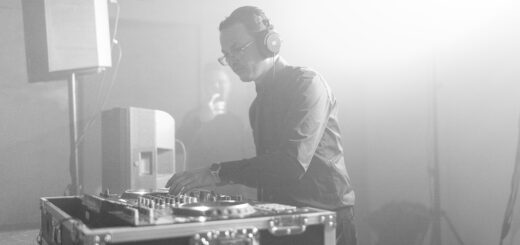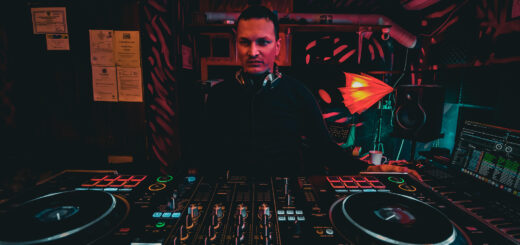Dive into Astara’s Creative Process and Inspirations in Electronic Music
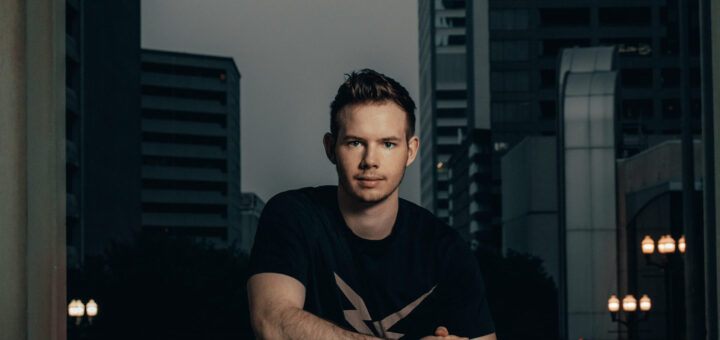
Welcome to an exclusive interview with Electronic music Producer Astara, where we delve into the depths of his musical journey and creative influences. In this interview, shares insights into his artistic evolution and the influences that drive his passion for music. From his early inspirations to the profound impact of live shows and cultural experiences, Astara’s journey showcases the transformative power of music.
Join us as we explore the inspirations behind Astara’s captivating sound and gain a deeper understanding of the artistic vision that fuels his creativity.
Hello Astara, great to catchup again! How are you?
I’m doing great! It’s nice to be here with you. I’ve just been tucked away in my studio tinkering on some new songs for the spring and summer. Excited to share those soon!
To begin, tell us, what inspired you pursue a career in music?
Music is a very powerful storytelling medium, and the desire to create and tell stories was what inspired me in the first place! I have a background in film, so I like to put these two mediums in contrast to each other. Take short film as an example: a short film can take months of work to see to completion. You rely on big crews, you need cohesion among your team, and often you need a sizable budget. There are many variables you can’t control, and we’re not even talking about television or feature film. This ultimately introduces luck into the process of any great cinematic endeavor. You need everything to click just right. On the other hand, I have always enjoyed the fact that music—by comparison—is a lean artform, affording a single artist the opportunity to fully immerse himself in his craft and achieve great results.
A timeless song could be written in a single afternoon by one person. So even though I’m not there yet (I think we’re all chasing that “perfect” song), I am inspired by the medium’s potential. It’s a direct, efficient artform. But most of all, I think the process is incredibly personally gratifying: on the other side of all of your efforts is a deeper knowledge about yourself, and a song that can connect with audiences from across the world. It doesn’t get better than that!
Who were your initial inspirations? Were there any particular Artists that you would say were monumental in introducing you to Electronic Music?
Oh absolutely. There are several artists who played a monumental role in introducing me to Electronic music. Growing up, I was captivated by the boundary-pushing compositions of pioneers in Electronic music, such as: Giorgio Moroder, Depeche Mode, and Sasha. Giorgio Moroder was especially impactful because of the emphasis he placed on melody in all of his work. I think some people assume dance music is primarily about the kick drum and the bass, but then you have people like Moroder who remind you that melody is just as vital. Think of a song like “Lady Lady,” produced by Moroder and released in 1983 by Joe Esposito for the film Flashdance (which Jennifer Beals is fantastic in, by the way). Songs like “Lady Lady” call to mind the sentimentality of the 1980s, but the synth work is impeccable. I dare you to listen to it and try not to get swept up in the emotion! Beyond Moroder’s prowess, the collective influence of those three—Moroder, Depeche Mode, and Sasha—was unmistakable. They really opened my ears to a whole new sonic landscape and sparked my fascination with Electronic music.
Additionally, artists like Aphex Twin, Daft Punk, Eric Prydz, and Ferry Corsten were instrumental in shaping my early exposure to Electronic music. While electronic music was still an amorphous genre to me, legendary tracks like “Fire” by Ferry Corsten (sampling Duran Duran) and “Pjanoo” by Prydz were starting to stir my own interest in songwriting. Their compositions really encouraged me to consider the idea that maybe one day I could create something interesting too—if I applied myself with full effort and commitment.
How would you say attending live shows and concerts inspires you?
Absolutely, attending a festival or standing among the crowd at a local venue like The Basement East here in Nashville offers a certain energy and connection that you can only feel in those settings. One aspect that makes live shows so exhilarating for me is the sense of freedom they offer. When I’m there (not as the artist or part of the staging crew, lights, or event management) but simply as an attendee, there’s a genuine feeling of ease and relaxation. I think this opens us up to meeting new people and having a great time without all the concerns of everyday life. The laidback vibe you get to experience when attending a well-planned event with solid acts ultimately gives you vital perspective, in my opinion. For that reason alone, I try to get to a concert as an attendee at least once every two months.
Can you tell us, what keeps you motivated to create?
When I was a student, all I wanted to do was create music. Even now, years later, I have never forgotten that feeling of studying trigonometry and calc when I wanted more than anything to be writing music. Flashbacks to those moments offer crucial reminders to me. The freedom to follow my passion and immerse myself in the world of music are gifts. Maintaining this perspective is what keeps me on track.
One experience that profoundly impacted my creative journey was a trip to Ecuador I took in 2018. While exploring the Andean mountains, I was captivated by the music I came across on my trip. The music was performed by local Native Americans who spoke an indigenous language known as “Kichwa.” They had a lot of different flute instruments that were unique to their culture. If I recall correctly, they had Tarkas which were often made of a clay material and played these haunting nostalgic melodies, and then other flutes such as the Quena. They also had a small stringed instrument called a Charango which resembles a guitar. The Charango has five pairs of strings and a resonator typically made from an armadillo shell! I’m trying to paint the image here but suffice it to say these were strange instruments to me. Hearing these beautiful songs performed on exotic instruments and sang in strange tongues was really inspiring and eye-opening. The songs sparked a deep sense of curiosity within me and have since inspired me to incorporate elements of the music into my own compositions.
While I haven’t released these songs, I have kept them for myself and listen to them every few weeks for my own enjoyment. Why does this matter? Well, whether it’s evoking raw curiosity or sparking moments of introspection, knowing that music always has the power to resonate with listeners, even across massive cultural boundaries, is incredibly motivating. Perhaps one day I can show my music to someone from a distant culture, and they may find a corresponding sense of wonder—the same I felt high up in the Andean mountains. That would be an incredible thing! And on a final note, I’m also just deeply grateful for the opportunity to pursue my passion for music. In a world where so many face significant barriers to creating art, I understand the privilege it is to devote time to something I love. Having this awareness fuels my determination to make the most of every moment and fully apply myself to my craft.
What feelings and emotions do you hope to inspire in your fans when they listen to your music?
My greatest goal is for listeners to invite my music into specific moments in their own lives. I want them to experience it as a companion to their own stories, whether it’s evoking memories of a great road trip, moments of deep optimism, or the beginnings of a new job or chapter of their life. Just like certain albums bring back great memories for me, I hope my music can do the same for them. It would truly be an honor for me to know that my music has become intertwined with my audience’s memories and emotions, resonating with them on a deeper, emotional level. You can’t ask for something greater than that as an artist.
Who are your biggest musical inspirations now?
It’s tough to narrow it down because there are so many brilliant artists out there right now. My list is extensive! I find myself drawn to indie rock, so bands like Fleet Foxes, The War On Drugs, and Rainbow Kitten Surprise are among my biggest inspirations. Their music is perfect for those moments where I’m in a creative lull.
In the Electronic music realm, I look up to Don Diablo, because I think he puts on a hell of a show. From the artistic vision of his brand to his DJ sets, MC work, and the general ebb and flow of his concert—you’re not going to find someone better than Don in the Electronic music sphere! He also put out some bangers when I was in my teenage years so for nostalgic reasons alone his work will always resonate with me.
Do you ever take inspiration in other art forms outside of music? If so, where?
Absolutely. I find any artform that demands physical engagement intriguing. Take sculpting, for example. It involves shaping materials with one’s hands, often leading to physical fatigue and the literal strengthening of one’s grip and hand muscles. Similarly, painting demands a delicate touch, requiring the honing of fine motor skills and precise movements. Engaging in these physical processes not only challenges the mind but also fosters a unique connection between the body and the work being created. As musicians, we don’t always experience this physicality in a Logic or Ableton session, which is why I often play the keyboard or various synths in my studio. Playing instruments offers a tangible connection to the sound you create. There’s a raw, visceral quality to these physical artistic practices that ignites my creativity and reminds me of the power the body can lend to creative work!
Outside of Electronic Music, are there any other genres of music that you find particularly inspirational?
Certainly. I listen to everything really, but I usually listen to classical in the morning to ground myself for the day. It has a calming effect, especially expansive romantic-era operas. I grew up in New York, a stone’s throw from the Metropolitan Opera, so I listened to a lot of symphonic music, as well as selections from local radio that broadcasted their concertos and operas. I think romantic era composers like Wagner and Fibich, were truly a cut above the rest. The other artists I like to listen to in the morning are Jazz and Blues greats like Charlie Parker, Miles Davis, B.B. King, and so forth. Those artists are right up there with the romantic composers in my mind. And just generally speaking, Blues and Jazz always puts me in a great headspace for the day, so it’s part of my daily rotation.
What inspirational tips or advice do you wish you had known when you first started your career? Do you have any words of wisdom for those hoping to pursue a career in music?
This is a good question, and one that’s hard to answer! There are many things I wish I knew, but there is one that stands out as the most important. I wish I had known the Law of Reversed Effort. This principle, coined by Aldous Huxley, states that “the harder one consciously tries to attain something, the less likely they are to succeed.” Think of a penalty kick taker thinking too much about where they want to place the ball, or a basketball player overthinking their form on a free throw. Too much effort removes the natural flow. This is particularly true in creative fields.
I think a deliberate conscientious effort is always better than “wanting it real bad,” or whatever you hear in certain motivational spaces. Those ideas may apply to sports in some contexts, but in the creative arts, we must relinquish the desire to control and instead offer our best effort each day. You will see so much more progress when you trust yourself and your work instead of fighting against the current. And to anyone working in the arts, I would say look into the Daoist concept of Wu Wei which really works in tandem with the Law of Reversed Effort. Open yourself up to enjoying the process of creating, and you will go far in achieving your goals!
We thank Astara for sitting down with us in this exclusive interview, that share a glimpse into his musical journey and the experiences and ideas that influence his music and artistic vision. His curiosity, openness and knowledge shine a light into what makes his music so unique and powerful; and while there’s more projects and music to come, make sure to follow him across social media to remain updated on his latest news, as he’s surely a name on the rise.

